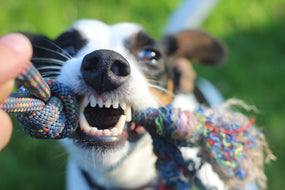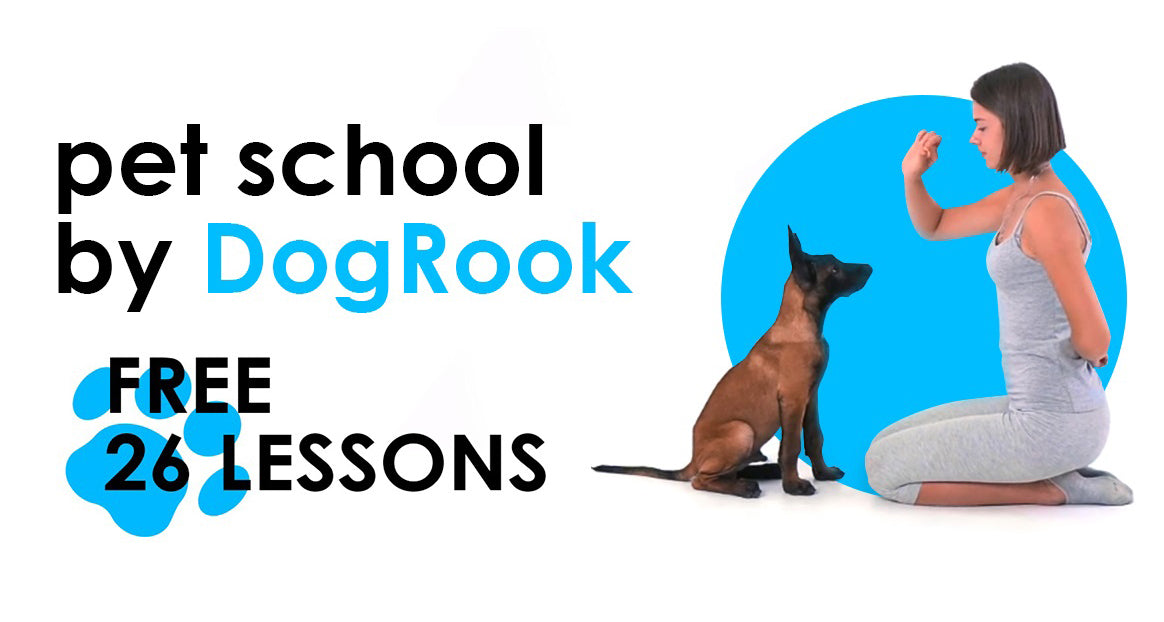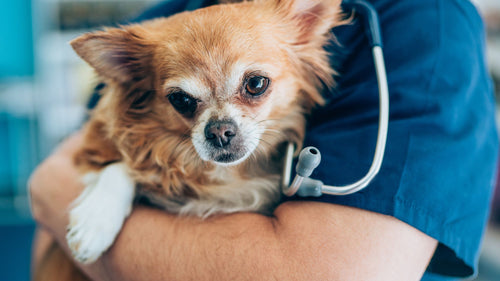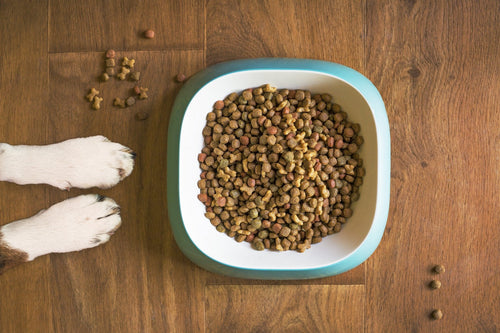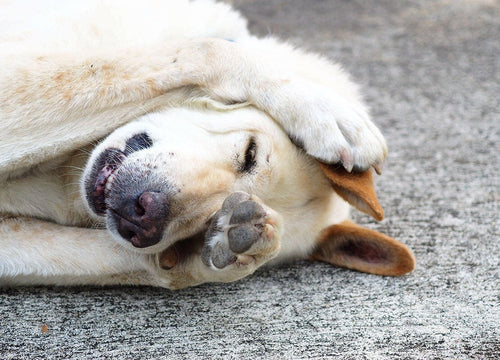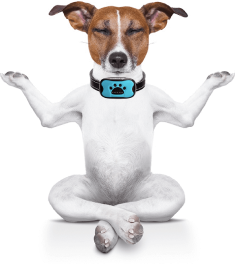Puppy Care: 10 Golden Rules for the Dog Owner
To help the puppy grow up healthy, happy and well-mannered, the owner must have a wide knowledge of nutrition and training, as well as proper dog care. Of course, despite all your efforts, you cannot replace his mother, but always remember that the responsibility of raising the puppy is now up to you. Below are 10 simple rules that will help you grow a dog that is delightful and respectful to others in its appearance and behavior.
Rule # 1. Puppy training starts from day one

A puppy is not born fully trained. From the moment you take him into your home, he sees you as a leader and an example to follow. Good dog training plays a big role in your relationship with your pet. It is through training that the puppy learns to understand what the owner expects of him, and this is how he can get used to the new environment. On the other hand, the better you get to know your pet, the easier your future life will become. First, make contact with the puppy and choose a name for him. Names of dogs often overlap with the character and behavior of the dog in the future.
Rule # 2. Your puppy needs a balanced diet

It is very important how you feed your puppy. The nutritional and energy value of the diet that a dog receives from a very young age determines his health status for life. To maximize the genetic potential of the dog, it is especially important to organize proper feeding of the puppy. Nutrition should take into account the needs of the growing body. It is safe and tasty. He needs a balanced diet with a certain amount of proteins, fats, minerals and vitamins. The dog must have constant access to a bowl of fresh drinking water. Your veterinarian will help you choose the right diet for your puppy and adjust it accordingly.
Rule # 3. Puppy care should be regular and thorough

Maintaining the puppy's health at the highest level is the main task of the owner. If you pay close attention to this issue for a puppy, then its vitality will delight you for many years. If you follow these simple rules, you can ensure that your dog is at his peak health as long as possible.
A dog's coat needs proper and regular grooming. When combing the coat, you may notice changes in the skin, scratching, inflammation, bumps, and abrasions. At this point, you need to examine the entire dog from nose to tail. Dogs with long hair need regular brushing, and smooth-haired breeds will need their coat combed with a soft brush or wiped with a cloth. Teach your puppy to be hygienic from an early age. The puppy's ears should be checked regularly and cleaned with a cotton swab. Particular attention should be paid to this procedure in puppies of breeds with drooping ears, since they have difficulty in the natural ventilation of the auricle.
The corners of the puppy's eyes are wiped with a soft cloth. Their claws are sheared as they grow back with a special clipper. It will be better if you do the first procedure with a veterinarian.
Rule # 4. Remember to watch your puppy's teeth

It is necessary to monitor the puppy's teeth as well as the teeth of a young dog. If plaque or calculus develops, seek veterinarian assistance. You can periodically give your dog plaque prophylaxis. Many owners also wonder how to brush their dog's teeth. Use a toothbrush or special treat. It is not only healthy, but also tasty, and it can be given to them from the age of four months. You can train your dog to calmly respond to brushing his teeth with a soft toothbrush using a special paste.
Rule # 5. Provide your puppy with daily physical activity

For a puppy to grow up healthy and strong, he must receive daily physical activity. Its value depends not only on the size of the puppy, but also on its breed. But do not overload the pet: the bones of the baby are still very fragile, and sometimes he simply cannot bear the excessive stress. Regular walking and movement is beneficial for the development of your dog and helps it to grow physically and emotionally. Do not neglect walking, even if your pet is a dwarf breed.
Rule # 6. Show your puppy to your veterinarian periodically

Before you even bring your puppy home, you should choose a good veterinarian. This may be recommended by the breeder or your fellow dog owners. The health and well-being of the puppy, and your future adult dog, depends on how responsible and competent your veterinarian will be.
The first visit to the veterinarian must be made for routine vaccinations.
Try most of your dog's health diary procedures:
Daily:
- Play, communicate, stroke, feel around and perfirm a visual inspection of the puppy, paws, and eyes.
- Watch for nasal and eye discharge.
- Brush the coat of long-haired dogs.
- Check his/her teeth and brush if necessary.
Weekly:
- Clean the ears, and if necessary, trim the hair from the inside of the ear.
- Check skin for fleas.
Monthly:
- Check the length of the claws and trim them if necessary.
- Bathe your puppy if it is heavily soiled.
Once every four months:
- Give a preventive remedy for worms.
Once a year:
- Conduct an examination via a veterinarian, and do routine vaccinations.
- Treat your dog against ticks in the spring, summer and fall.
- In the summer, avoid direct sunlight and getting overheated.
Rule # 7. Introduce your puppy to other dogs

Dogs adapt very quickly to the world around them. It is very important to introduce a puppy to the world of people, but we must not forget that this is a dog, and he will inevitably have to communicate with other dogs. Therefore, do not limit him from communication with adult dogs. At the same time, do not be afraid that the big dog can harm the baby - they usually behave peacefully towards puppies. Many young dogs like to show their advantage over weaker dogs. From a young age, strictly forbid the puppy to behave this way. This is not correct in relation to the owner of the dog that your puppy attacks. If this behavior is not corrected at a young age, problems can accumulate, and exacerbate the issue. The dog will fight all the animals it is around. In such cases, walking the dog and raising it may turn out to have great difficulties for the owner. It is easier to let the puppy play with all the dogs in the area from childhood without encouraging aggressive behavior. Playing with peers socializes the puppy well and allows him to acquire the skills of proper communication with other animals.
Rule # 8. Encourage good puppy behavior

Encouragement is a strong incentive for a puppy to become a well-mannered family member. If your pet does what you asked him to do, remember to reward him with a praise or a treat. The pet will get used to it, and in the future it will try to behave itself.
Rule # 9. Be patient with your puppy

Raising a puppy will require a lot of patience and love from you. Educate yourself, read literature about your puppy, talk to other dog breeders, trainers, and your veterinarian. All this in the future will help to eliminate many unpleasant moments, and you and your pet will have a long and happy relationship.
Rule # 10. Love your dog
Surround the puppy with love and care: take care of him, walk him, and play with him. Never hit a puppy, do not show aggression or cruelty towards him. Your pet should be sure that he is completely safe next to you and that nothing threatens him. In turn, you can be sure that your puppy will respond to your care and affection with boundless love and devotion.
With love to your dogs,
DogRook


